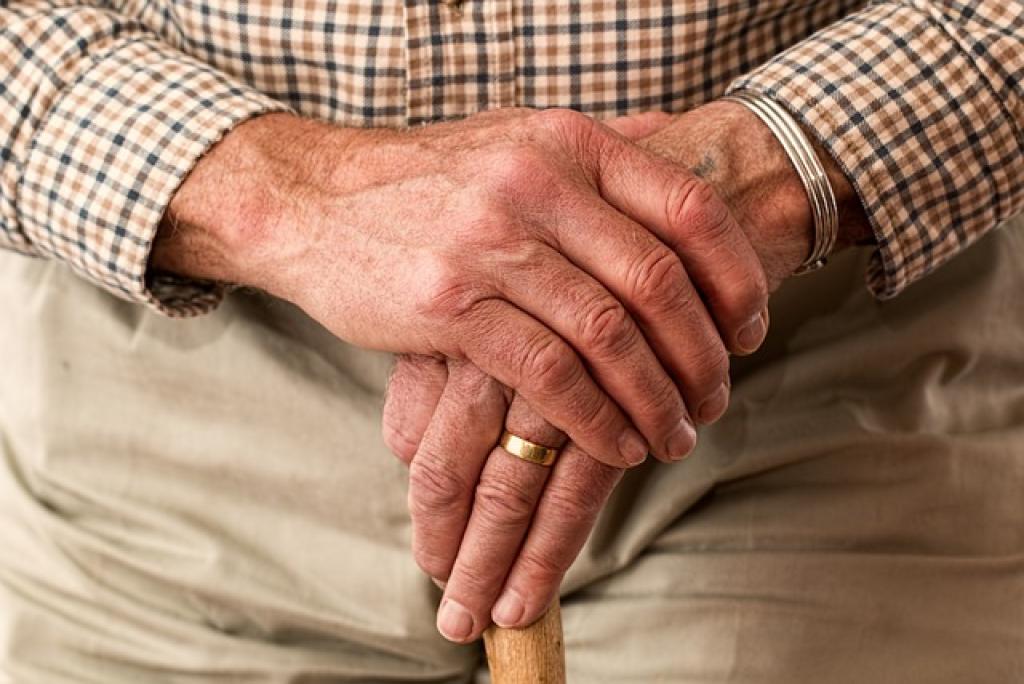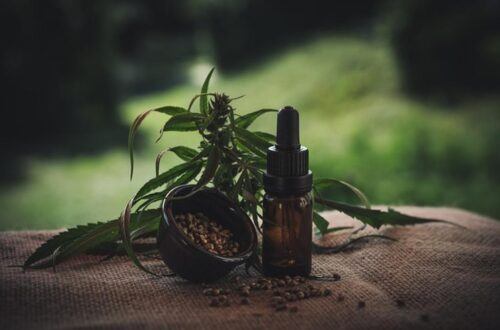Sleep can be elusive, especially as we age. Many older adults find themselves tossing and turning at night, desperately seeking the restorative sleep they once took for granted. If counting sheep just isn’t cutting it, you might be exploring alternative remedies.
Enter CBD, a natural compound that’s been creating quite a buzz. Derived from the cannabis plant, it’s been touted for numerous health benefits, including improved sleep.
But can CBD really help older adults achieve a good night’s rest? Is it safe? What should you look for when considering CBD products? Let’s dive into what you need to know about using CBD to help tackle those sleep issues.
CBD’s Potential Benefits for Improving Sleep in Older Adults
CBD, or cannabidiol, is renowned for its calming properties. It may assist in reducing anxiety, which is a common culprit behind restless nights. By interacting with the body’s endocannabinoid system, CBD helps promote a sense of tranquility and wellbeing.
Pain and discomfort often disrupt sleep, especially in older adults. CBD possesses anti-inflammatory and analgesic properties that can alleviate chronic pain, potentially leading to uninterrupted sleep.
Furthermore, CBD has been shown to influence sleep cycles positively. It can help extend the duration of deep sleep, which is vital for overall health and rejuvenation.
Some studies also suggest that CBD may regulate the body’s circadian rhythm, the internal clock that dictates sleep patterns. A balanced circadian rhythm can make falling and staying asleep easier.
While research is still in its infancy, many older adults have experienced noticeable improvements in sleep quality and duration after incorporating CBD into their routine.
As always, it’s wise to consult a healthcare professional before starting any new supplement, especially if you’re taking other medications. Still, the promising benefits of CBD make it a compelling option for those struggling with sleep issues.
How Does CBD Interact with the Body’s Endocannabinoid System to Promote Sleep?
CBD works its magic by interacting with the body’s endocannabinoid system (ECS), a complex network responsible for maintaining balance and regulating various bodily functions, including sleep.
The ECS comprises endocannabinoids, receptors, and enzymes. CBD primarily interacts with two key receptors in this system: CB1 and CB2. These receptors are located throughout the body, including the brain and nervous system.
When CBD engages with CB1 receptors in the brain, it may help regulate mood and anxiety, both of which are critical factors in achieving restful sleep. By lowering anxiety levels, CBD makes it easier to relax and drift off.
CBD also affects serotonin receptors, which play a significant role in mood regulation. A balanced mood can directly contribute to higher quality sleep by reducing stress and tension that might otherwise keep you tossing and turning.
In addition, CBD helps manage cortisol levels. Cortisol is a stress hormone that, when elevated, can wreak havoc on your sleep cycle. By helping to keep cortisol in check, CBD creates a more conducive environment for sleep.
It’s fascinating how this natural compound works in harmony with our own body’s system to improve sleep. This intricate interaction underscores why many consider CBD a potential game-changer for those struggling with sleep issues.
Choosing the Right CBD Product and Dosage for Sleep Troubles
When it comes to picking the perfect CBD product for sleep, there are a few options to consider. CBD oil, capsules, gummies, and even topical creams are popular. Each has its pros and cons.
CBD oil and tinctures are great for those who want quick results. Just place a few drops under your tongue and you’re good to go. This method allows for faster absorption into the bloodstream.
Capsules and gummies, on the other hand, are easy to dose and convenient for people who prefer not to deal with measuring out oil. They do take a bit longer to kick in because they need to be digested.
Topical creams are another option, but they are generally more targeted at localized issues like muscle pain and might not be as effective for sleep.
Now, figuring out the right dosage can feel like a guessing game at first. It’s best to start low and slow. A common starting dose is around 10-20 mg of CBD per day. You can gradually increase it until you find the sweet spot that helps you sleep better.
Everyone’s body reacts differently, so it might take some experimentation. Keep a sleep journal to track how different doses affect you. This can help you pinpoint the most effective amount.
Remember, consistency is key. Taking your CBD at the same time every day can help your body get into a routine, making it easier to fall asleep when you want to.
Talking to a healthcare provider is always a good idea before starting any new supplement, especially if you’re on other medications. They can offer personalized advice and ensure that CBD is a safe option for you.
Addressing Common Concerns and Misconceptions About Using CBD for Sleep
One of the biggest worries folks have is whether CBD will make them feel “high.” Unlike THC, the compound in marijuana that causes a high, CBD is non-psychoactive. You won’t experience any mind-altering effects.
Another common concern is legality. Rest assured, CBD derived from hemp containing less than 0.3% THC is legal on a federal level in many places. However, it’s always good to double-check your local laws to be sure.
People often ask if CBD is addictive. Studies have shown that CBD is not addictive and doesn’t cause dependence. In fact, some research suggests it could help with addiction issues by reducing cravings for other substances.

Will It Show Up on a Drug Test?
This is another frequent question. Most drug tests look for THC, not CBD. On the other hand, some CBD products can contain trace amounts of THC. To avoid any issues, opt for products labeled as “THC-free” or “broad-spectrum.”
There’s also the misconception that more CBD equals better sleep. Bigger doses aren’t always better. Too much CBD might actually make you feel more awake. That’s why finding the right dosage is so crucial.
People sometimes worry about side effects. Generally, CBD is well-tolerated, but some might experience dry mouth, light-headedness, or slight digestive discomfort. Starting with a low dose can help you avoid these issues.
Lastly, some skeptics think CBD is just a fad. Yet, growing research and countless positive user experiences suggest otherwise. While it might not work for everyone, many find it a valuable part of their bedtime routine.
If you’re still unsure, it’s always wise to talk to a healthcare professional. They can give you advice tailored to your specific needs and help dispel any lingering doubts.
Research and Studies Supporting the Efficacy of CBD for Sleep Issues in Older Adults
Recent research is increasingly showing that CBD may be an effective solution for improving sleep, particularly in older adults. One study involving 72 adults found that 66% of participants experienced improved sleep within the first month of using CBD.
Another piece of research focused on older patients suffering from anxiety and sleep disturbances. The results were promising, with nearly 80% reporting decreased anxiety and over 65% noting better sleep quality after taking CBD.
Potential Benefits Beyond Sleep
CBD’s anti-inflammatory properties could also be beneficial for older adults experiencing sleep disruptions due to chronic pain. Some studies suggest that reducing inflammation can significantly improve sleep quality, making CBD a dual-action supplement for many older individuals.
Interestingly, a survey conducted on older adults who regularly used CBD showed that many experienced not just better sleep, but also overall improved quality of life. Factors such as reduced pain and anxiety contributed to these positive outcomes.
What makes these findings even more exciting is that CBD has a relatively low risk profile. Unlike some prescribed sleep medications, CBD does not appear to cause addiction or severe side effects, making it a safer alternative for older adults.
As always, more research is needed, but the existing studies offer a promising outlook. Consult with healthcare providers for personalized advice and to ensure CBD is an appropriate option in your unique case. Science continues to evolve, and the data we have so far gives us good reason to be optimistic.
The Bottom Line: Incorporating CBD into Your Sleep Routine for Better Rest
To wrap things up, incorporating CBD into your nightly routine could be a game-changer for achieving better sleep, especially for older adults. It’s backed by a growing body of research suggesting its effectiveness not just in promoting sleep, but also in alleviating issues like anxiety and chronic pain that can disrupt rest.
One of the key points to consider is the low risk associated with CBD. Unlike many traditional sleep medications, CBD does not seem to cause dependency or severe side effects, making it a safer, natural alternative for improving sleep quality. Always consult a healthcare provider before starting any new supplement to ensure it is right for you, but the initial data paints a promising picture.
Starting with a low dosage and gradually increasing it can help you find the amount that works best for you with minimal side effects. Additionally, quality matters, so it’s important to choose high-grade CBD products from reputable sources.
Integrating CBD into your bedtime routine doesn’t have to be complicated. It can be as simple as taking a CBD tincture, using a topical cream, or consuming an edible before heading to bed. Pairing CBD with other good sleep hygiene practices—like maintaining a regular sleep schedule, creating a restful environment, and limiting screen time before bed—can amplify the benefits.
In summary, if you’re struggling with sleep issues, CBD is worth exploring as a potential solution. It offers a holistic approach to improving your sleep and overall quality of life. With minimal risks and plenty of upsides, CBD might just be the sleep aid you’ve been looking for.
Sleep tight!






